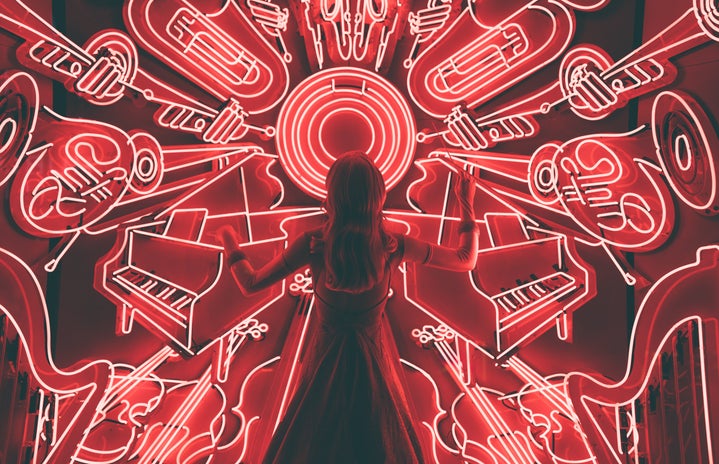I love music. I’ve been doing everything in my life with music as my constant companion since almost forever now, from turning on my rockstar mode in the shower to making math homework enjoyable with Ed Sheeran in the background. It makes everything better. I think the first western pop song I heard was, weirdly enough, Smack That by Akon and considering the nature of the song, obviously must have embarrassed myself by singing it everywhere at the age of nine. Music has deeply influenced the way I am as a person. I went through puberty, high school crushes, and some weird fashion choices, all with the help of music. I feel as though I’ve literally grown with music.
My taste in music is extremely versatile. I listen to most genres, and my playlist is a mix of everything. So there’s something that’s been really bothering me for a bit now; the trend that has taken over the music industry since the past ten years. Most mainstream music heavily depends on autotune, dubstep, electronic beats, and repetitive lyrics. The lyrics are catchy, but these songs can fundamentally be broken down into maybe ten sentences.
Music, for me personally, is about emotions. It is about being able to connect with people through the lyrics, the vocals, and the actual use of instruments. So naturally, the changes listed above have, in my opinion, deteriorated the quality of music produced these days. Why has the focus of producers and composers shifted in this direction?
In 2012, the Spanish National Research Council published a report which could be summarised as “pop music is too loud and all of the songs sound the same.” The researchers used a total number of 464,411 music recordings to analyze what has changed over the last half-century between 1955 and 2010. Their conclusion was that the ‘melodies seemed to have become simpler as the decades passed’. The need for composers to rely on the electronic version of instruments like the guitar, piano, trumpet, etc. has also resulted in music being unable to stir up the feelings that real instruments do.
While this article mostly focuses on western pop, I also wanted to include how Bollywood has recently started to transform every old classic into a new, “hipper” version, which I thought no one would want. But there must be a reason why the Bollywood music industry didn’t stop after one remix. So who’s to blame for this change in the music scenario?
A couple of decades ago, maybe we could’ve accused the record labels as they controlled what songs to put out on the radio and which albums to sell. But with an increase in transparency and the reduced distance between music composers and the audience, the power comes down to us. It’s we who decide what to tune into on music streaming platforms, and record labels rely on the data they collect from these streaming services to understand the kind of music that people want to listen to. So the only group to blame right now is the audience. We have become the catalyst that pushes pop music forward. We fuss about songs that lack meaning and originality, and yet we purchase those songs. Why?
I think part of the reason is that pop music is simple, and we like simple things. A formula of simple, illogical lyrics combined with the same old beats gives you a chart-topper. If a majority of pop music is shallow, repetitive, boring, or just bad, it’s because that’s precisely the kind of music we like.
The music industry’s focus has shifted from producing good music to creating “people who look more like pop stars” irrespective of whether they can sing or not. There are so many talented artists right now as well, but they don’t get the recognition they deserve and instead we see the charts dominated by artists who lip-sync at “live” concerts and use heavy autotune for their music. Artists like Queen, Pink Floyd, Aretha Franklin are some of my favourites. There are plenty other good artists focused on making music out there, I hope for them to get a chance to be in the spotlight without being corrupted by the industry’s demands.


